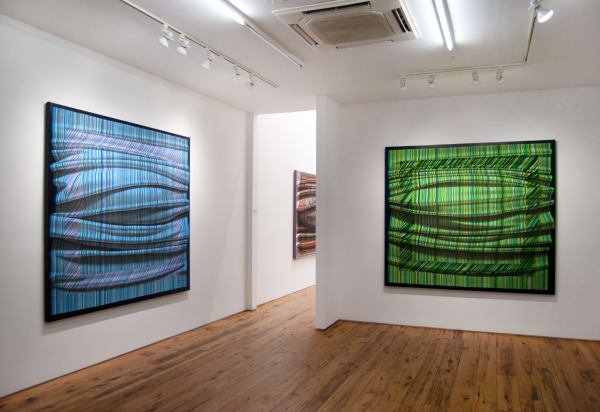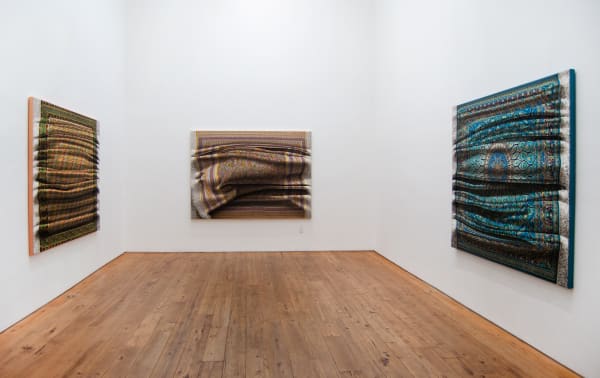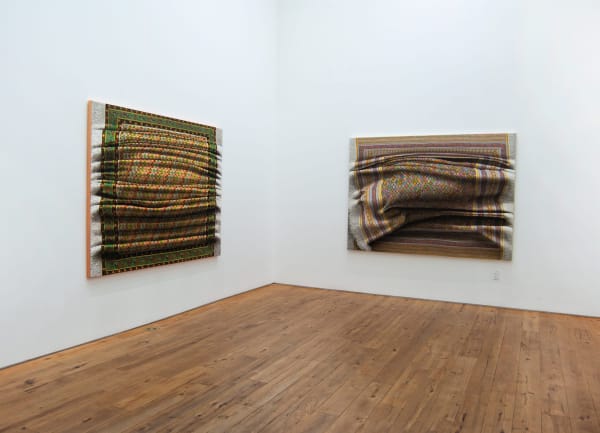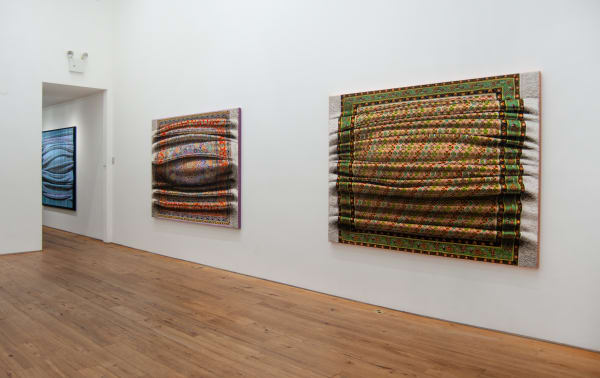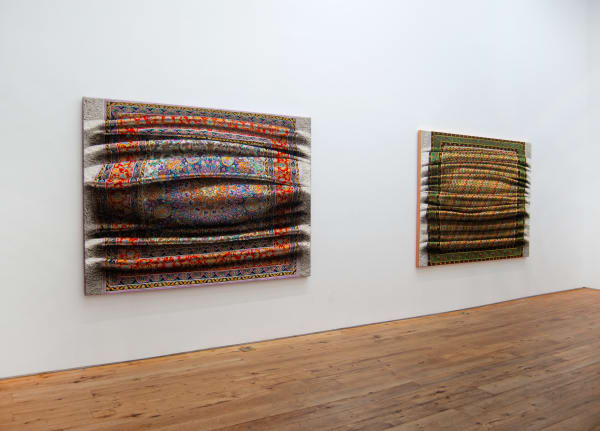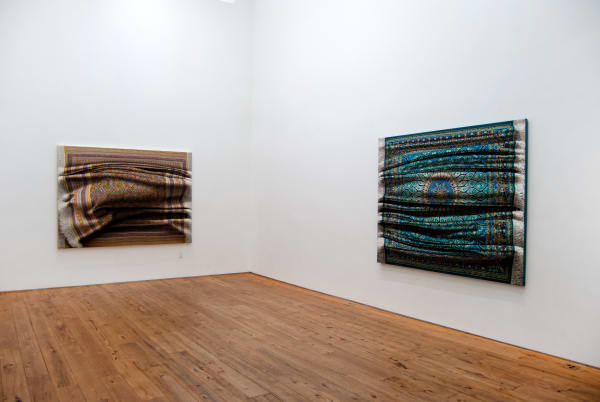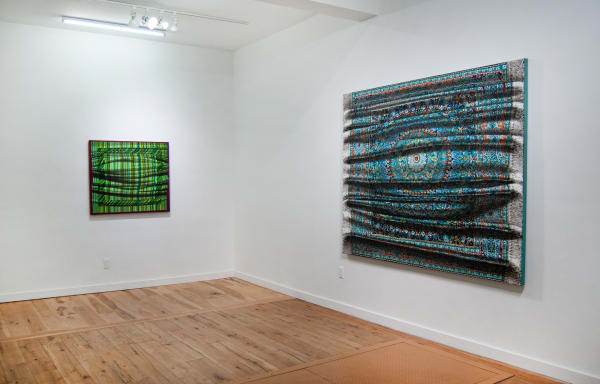Antonio Santín
This exhibition marks the 10th anniversary of Antonio Santín’s first solo show at the gallery.
Building on his well-known work of traditional ornamental rug paintings, the Madrid based painter Antonio Santín continues to expand his artistic vocabulary. His masterful use of art historical painting techniques such as chiaroscuro and trompe l’oeil are combined with his signature three-dimensional application of minuscule oil paint marks. The entire canvas becomes dense with colors capturing the rich ornamentation of luxurious carpets. But unlike the actual carpet, which has a flat surface, Santín now layers the oil. Flower buds open up in 3-dimension, and the knots tying the white fringe on the periphery are raised and shaped as real knots are. Vertical cords of paint appear woven. The application of paint is as detailed as threads are. His unique paint application not only adds to the illusion of the paintings but also enhances their highly intricate, mysterious nature. In the meantime, the shadow-like play derived from the dark glazing applied on top of the weblike surfaces of the paintings makes the viewer step back for an overview only to immediately wish to come closer to see those complex details again. This optical push-and-pull dynamic engages the viewer in a visual suspense that makes the work even more irresistible.
The triumph of these paintings is not simply the result of such bravura paint application. The paintings have warmth and individuality. While he begins with a borrowed high-quality rug, in the end the design, the layering, the choices of texture and colors are entirely his own. It’s this inventiveness that easily separates the work from photo-realism. The resulting paintings are joyful, gorgeous and arresting, art that constantly challenges and renews.
Apollo features symmetrical patterning, often found in Islamic decorative arts, with a suggestion of peacock feathers. Alboroto also seems to have an overall symmetry but a close look at the diamond patterning upends that notion. Here, the appearance of such complicated folds brings his work to new heights. In Muralla, the cords of paint appear as weavings which become further energized by the apparent folds in the rug.
This is Antonio Santín’s finest work to date. More than ever, his joyfulness in the making of the paintings come through to the viewer.
